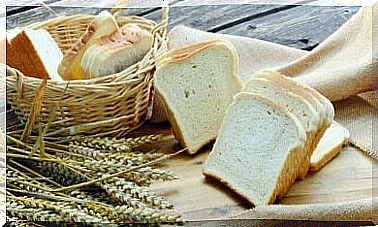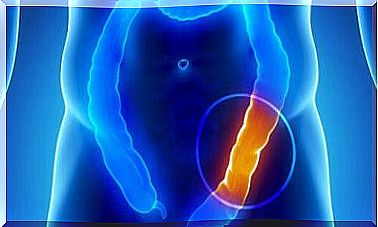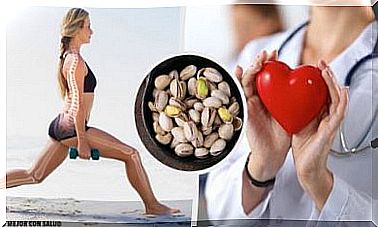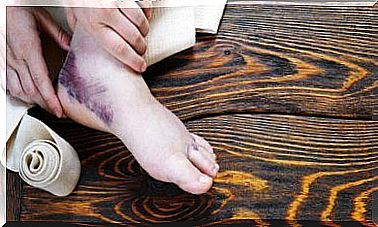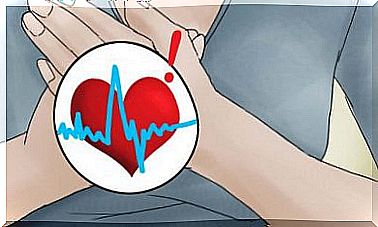Habits To Prevent Digestive Problems

Digestive problems are common. Gas, constipation, heartburn, bloating and other discomforts can overtake you at any time. Some people think healthy eating is enough, but many factors can affect your digestion. You should adopt some healthy habits to avoid digestive problems.
It’s true that these digestive problems don’t just cause discomfort. In the long run, they can become complicated and cause bigger problems than the simple inconvenience they cause. Often, just a few changes in your diet and general lifestyle can eliminate digestive problems.
Healthy Habits to Avoid Digestive Problems
1. Keep Your Body Hydrated

The famous rule of drinking ‘8 glasses of water a day’ is essential for healthy digestion. Several studies have shown that water helps prevent constipation.
The intestines need fluids to transport food. In addition, water facilitates the breakdown of food and the absorption of nutrients. If you don’t drink enough water, you miss out on many of the benefits of the foods you eat.
However, you don’t just get water by drinking it. You can even get it from fruits and vegetables, as well as juices, soups, and teas. However, it is best to avoid sodas and caffeinated drinks.
2. Eat only what you need
Eating more does not mean improved food intake. In reality, overeating causes heaviness, indigestion and many other problems.
When you eat in large quantities, the body has to work harder to process excesses. So it produces more enzymes to break down food and this forces it to produce more stomach acid.
This causes acid reflux into the esophagus. Overeating also causes gas and speeds up metabolism, resulting in exhaustion, sweating and feeling hot.
3. Have a Balanced Diet to Prevent Digestive Problems
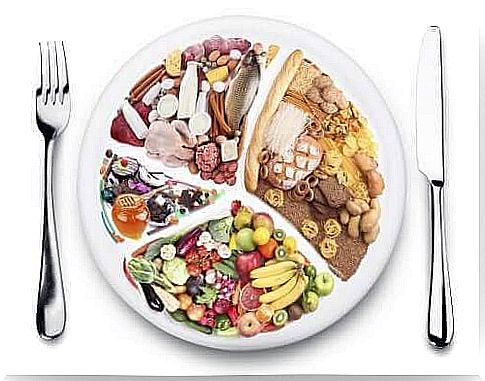
Your meals should consist of vegetables, proteins and healthy carbohydrates. dr. Gonzalo Guerra, a specialist at the Center for Digestive Diseases in Colombia, recommends minimizing the consumption of fats. As for protein, it’s best to eat lean meats such as:
- Turkey
- chicken
- rabbit
Processed foods typically contain trans fats, which are associated with cardiovascular and stomach problems, such as ulcers, colitis and stomach irritation. These foods also contain additives that, according to studies, cause increased intestinal permeability, which can cause intestinal inflammation, headaches and food allergies.
Furthermore, omega 3 fatty acids are very beneficial for stomach health. On the one hand, they help satisfy hunger, reducing the need to overeat. On the other hand, they facilitate the absorption of nutrients. Some research suggests that fatty acids may even prevent inflammation and stomach ulcers.
4. Eat Fiber
Foods rich in fiber have multiple benefits for both stomach health and good digestion. Fiber helps cleanse the digestive tract and increases stool volume, which helps fight constipation. For that reason, medical specialists recommend eating the following:
- nuts
- legumes
- vegetables
- cereals
- fruit
5. Control Stress to Prevent Digestive Problems

The digestive system and the brain are connected by more than 100 million nerve cells that transmit information in both directions. That is why, for example, you feel butterflies in your stomach due to certain emotional stimuli.
Stress also affects stomach health, as several studies show linking complaints such as diarrhea, constipation, heartburn and gastritis. Practicing stress management techniques, such as meditation, yoga, and exercise, helps improve mental health and, therefore, digestion.
6. Respect the times to eat and eat slowly
You should always respect the times for your meals. Distractions such as watching television or working cause stress, even when you think you are relaxed. Eating too quickly also causes gas and indigestion. Studies show that paying attention to your meals leads to better digestion and improved stomach health.
Taking the time to chew also helps prevent stomach upset. The digestion process begins when you chew your food. Properly cutting and chewing your food with your teeth facilitates the work of digestive enzymes.
Chewing well also produces more saliva, which helps break down carbohydrates and fats and hydrate solids so they can move better through the digestive tract. So you have to pay close attention to this process to facilitate the digestion of food.
7. Keep a food diary

Not all foods have the same effect on everyone. Some people suffer from food intolerances or allergies and have more difficulty processing food. By keeping a diary of what you eat, you can know which foods your body responds well to and which cause discomfort.
8. Exercise To Prevent Digestive Problems
Exercise has been shown to aid digestion. Physical activity speeds up the passage of food through the digestive tract by 30%, increasing nutrient absorption. It also reduces the risk of constipation and intestinal inflammation.
9. Avoid Bad Habits

Habits such as smoking and drinking alcohol can also cause digestive problems. Tobacco increases the risk of heartburn, ulcers and, in the worst cases, gastrointestinal cancer.
At the same time, alcohol also increases heartburn and reflux. It also promotes bacterial growth and can cause inflammatory bowel disease.
Say goodbye to digestive problems
It is not difficult to improve your digestion and avoid discomfort after meals. Making simple changes to your diet and daily habits can be helpful in preventing digestive problems.
The benefits are not limited to eliminating digestive problems. As medical evidence shows, a healthy digestive system generally means a healthy body. These nine habits will make you feel better in many ways!
